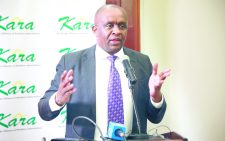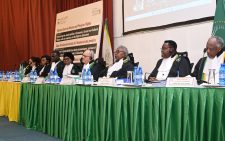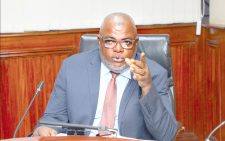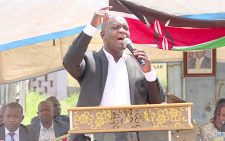IEBC says it’s ready should Uhuru dissolve Parliament
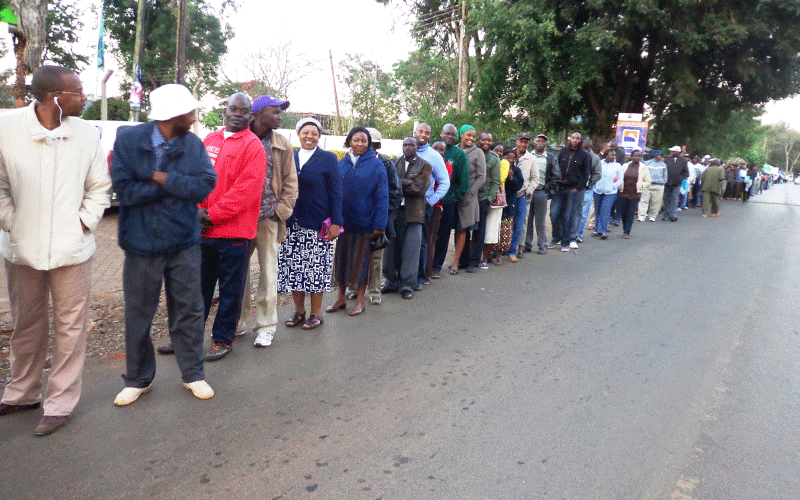
Hillary Mageka @hillarymageka
The Independent Electoral and Boundaries Commission (OEBC) yesterday declared its readiness to conduct fresh elections for Members of Parliament (MPs) and senators should President Uhuru Kenyatta heed Chief Justice David Maraga’s advice to dissolve Parliament.
Prof Abdi Guliye, one of the three siting commissioners told the Senate committee on National Cohesion, Equal Opportunity and Regional Integration that the agency was ready to hold massive by-elections should the President dissolve Parliament.
However, the only constraint would be unavailability of funds, which has dogged the commission since the acrimonious exit of five other commissioners.
“The Commission is prepared. We have almost 900 staff in all the 47 counties and 290 constituencies, and therefore, we are always prepared to conduct elections.
The only support we need is funding to undertake the elections,” Guliye said.
As opposed to six ballots in a General Election, a repeat poll would only require three ballots for an MP, Woman Rep and Senator.
Guliye, however, declined to state how much such a repeat election would cost, saying that could only be determined once the decision to dissolve Parliament has been made.
At the same time, the commission assured that it would not bar anyone from contesting any political seat simply because he or she has been charged in a court of law.
He explained that the law only requires the polls team to bar individuals that have been charged and sentenced for more than six months.
As such, he saaid, the electoral body would be guided by the law to vet thousands of candidates seeking to vie for elective positions in 2022.
“IEBC can only prevent someone from vying if he has been convicted in a court of law of a minimum sentence of six months and above.
We do not have any other guideline that can stop someone from contesting, and we have effectively maintained this position,” he told the committee chaired by Nominated Senator Naomi Shiyonga.
Mob lynching
“We will not be involved in mob lynching of people. We will follow the law and live with it,” he added.
Nandi Senator Samson Cherargei had earlier raised fears that politicians being charged in court on trumped up charges over their political affiliation could be barred from vying in future elections.
Cherargei, a close ally of Deputy President William Ruto, sought to know whether IEBC would allow leaders who have been charged with incitement in various courts to vie in the upcoming elections.
Cherargei and his Bomet counterpart Christopher Lang’at wondered how the commission would be ready to hold by-elections for MPs and senators yet there is no budgetary allocation for such an exercise.
“There is no budgetary provisions for the same. How are you ready for these elections if called today,?” posed Lang’at.
“How much money does IEBC need to conduct by-elections for 349 members of the National Assembly, 47 senators and Women Rep, if the President dissolves Parliament?” Cherargei asked.
Last month, Maraga advised the President to dissolve the male-dominated Parliament for failing to enact the two-thirds gender rule.
Maraga said the failure to enact the legislation was clear testimony of the legislators’ “lackadaisical attitude and conduct” in relation to the two-thirds gender rule.
“There is no doubt that the dissolution of Parliament will cause inconvenience and even economic hardship.
The fact that Kenya is in the midst of the coronavirus pandemic only exacerbates the potential impact of the decision,” Maraga wrote in the advisory dated September 21.
“Yet that is the clear result Kenyans desired for Parliament’s failure to enact legislation they deemed necessary. We must forget that more often than not, there is no gain without pain,” the CJ added.
Despite the 2010 Constitution stating no more than two-thirds of any elected or appointed body can be of the same gender, women hold 22 per cent of seats in the country’s Lower House of Parliament, and 31 percent in the Upper House.
A series of court rulings dating back to 2012 have directed Parliament to pass legislation to enforce the gender rule or risk being dissolved – but previous attempts have failed with female members of Parliament accusing their male colleagues of deliberately blocking efforts.
The National Assembly, Senate, Attorney General and some private citizens have since moved to court seeking to have the advisory set aside.


